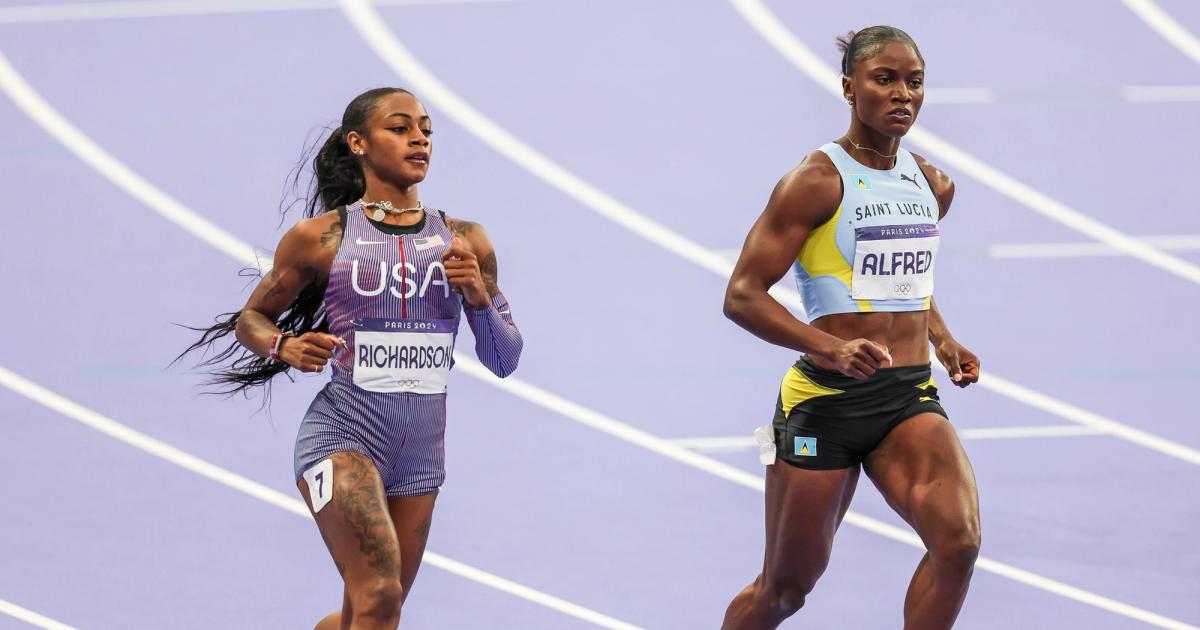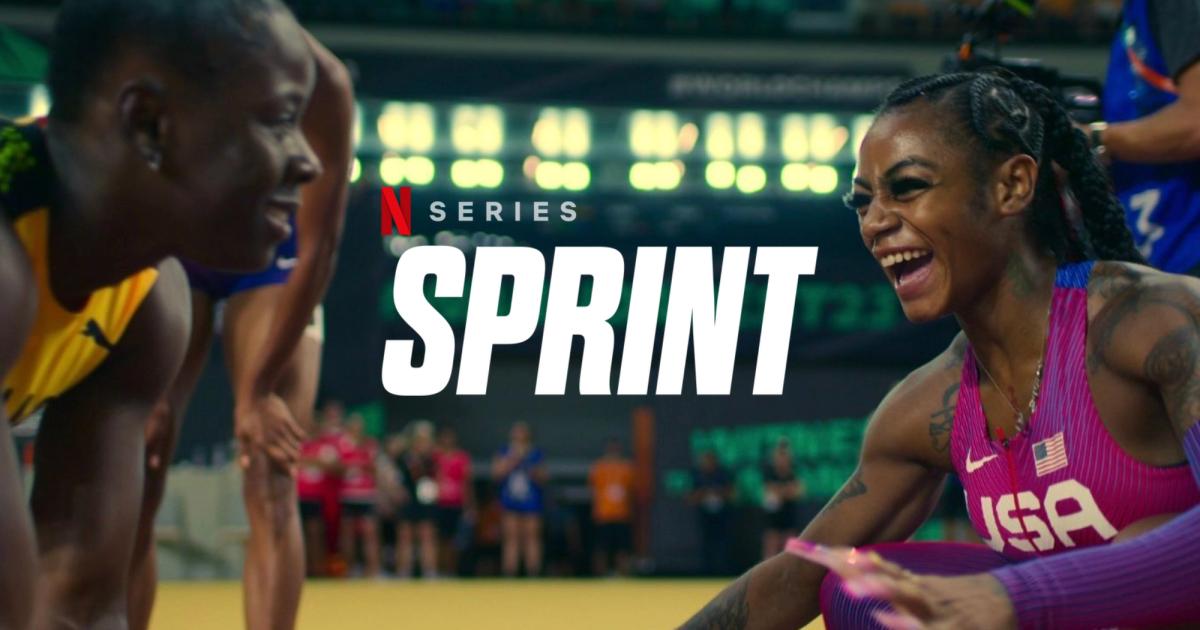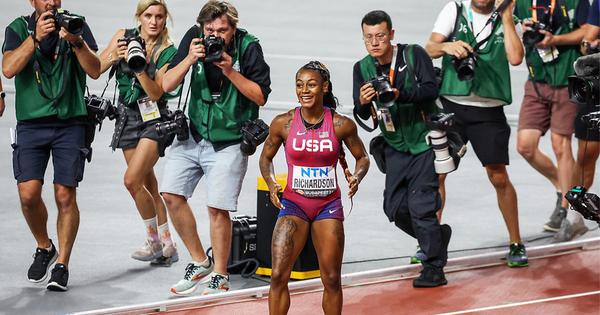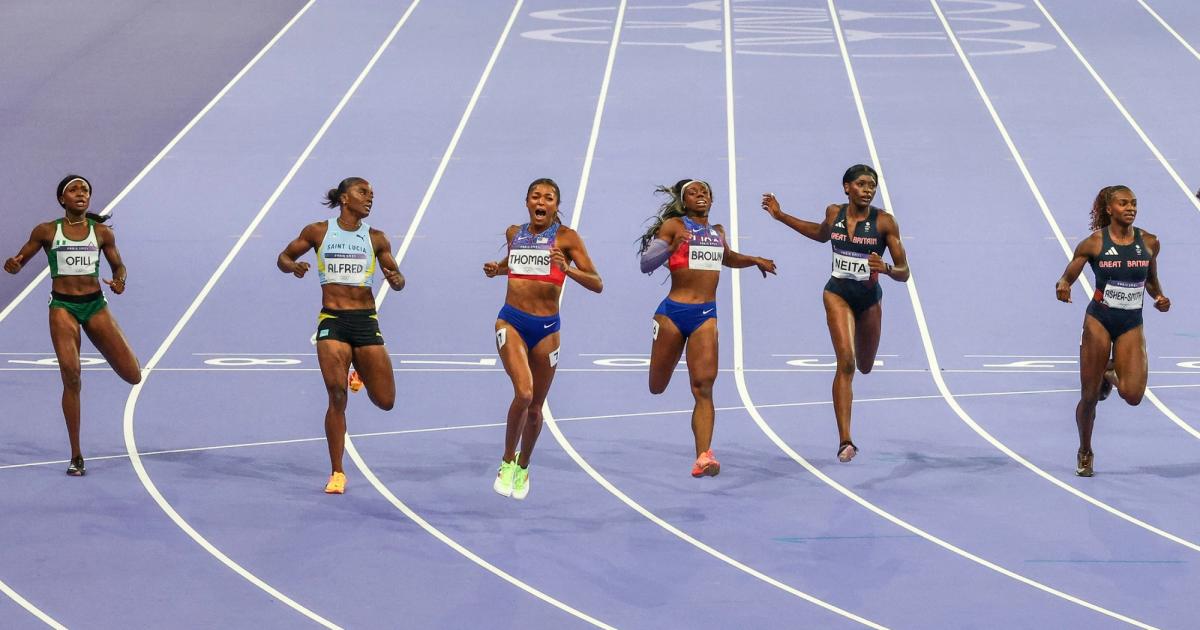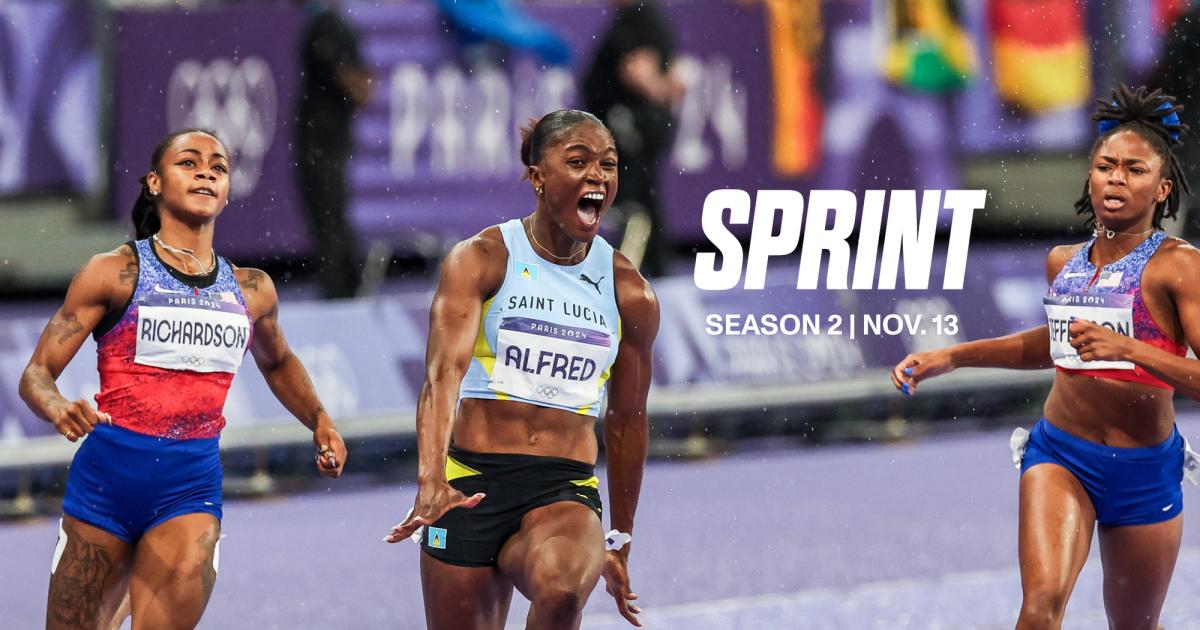By David Melly
November 20, 2024
Only three short months after the last spike crossed the finish line in the Paris Olympics, we got a post-championships addendum: the second season of SPRINT, which follows the world’s top 100m and 200m stars throughout the 2024 season.
Netflix’s sophomore swing felt… a little underwhelming, to say the least. Perhaps it’s the shortened length – down from six episodes in season 1 to four in season 2 – or the close proximity to the season it covered. “ ‘Member this?” works a little better with a bit more room to breathe and reflect, like in Netflix’s biggest sports doc offering of the year, The Comeback, which takes Boston Red Sox fans back through the historic 2004 postseason 20 years later. Regardless of the exact reason, SPRINT, take 2, felt more perfunctory than revelatory, more highlight reel than deep dive.
The most common criticism so far by the track and field peanut gallery has been a perceived over-focus on Americans at the expense of their global rivals, most notably spending way more time with 100m champ Noah Lyles than 200m winner Letsile Tebogo. But the folks at Netflix can’t help that the podiums in Paris were decidedly red, white, and blue, with Team USA accounting for 9 of the 12 100m/200m medals and 7 of the 10 medalists. And when you’ve only got about 3 hours of screen time, diving much deeper than the medalists and their primary rivals (i.e. the Jamaicans) feels like a tough ask. In fact, you could argue that Americans were under-represented as the only two medalists in this season without featured interviews were Americans Sha’Carri Richardson and Brittany Brown.
The greater weakness of SPRINT isn’t who’s featured; it’s what’s featured. After 10 episodes across two seasons, it’s clear that the series’s strongest move is expanding the 9-to-22 seconds of a race into hype-music, slow-mo, rapid-cut drama. SPRINT shows off what’s cool about track between the start and finish lines, but it never quite captures the true essence of the sport outside the stadium. There are exceptions – a quiet moment of tearful reflection for Julien Alfred post-100m gold is a real high point for this season – but overall, far more is missing than is shown.
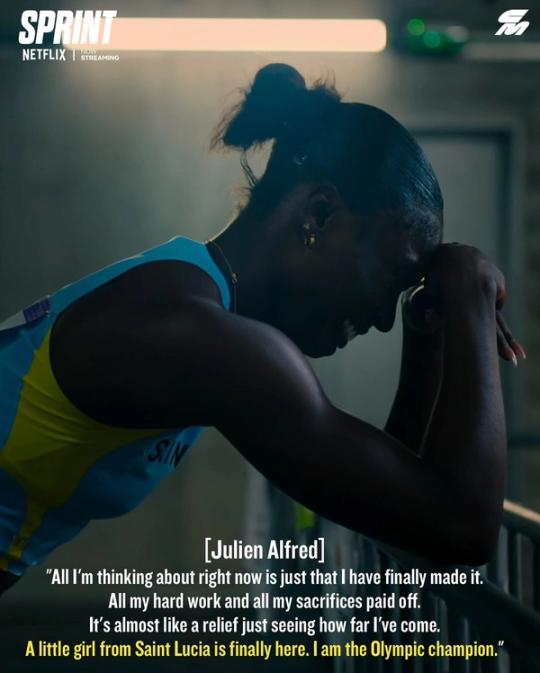
How do you talk about the 2024 season without mentioning Fred Kerley’s mid-year sponsor switch? Elaine Thompson-Herah’s calf injury? Sha’Carri Richardson and Shelly-Ann Fraser-Pryce’s troubles entering the Paris stadium on finals day?
The spectacular collapse of the Jamaican sprint machine (Kishane Thompson’s silver medal notwithstanding) was, perhaps, the biggest meta-narrative of the Olympics. And yet Shericka Jackson and SAFP are largely absent from the latter half of the season, nor are any Jamaican coaches or commentators asked the obvious question: what the heck happened?!
Richardson’s absence is also conspicuous, despite her coach Dennis Mitchell being featured prominently. Sha’Carri is one of the most dynamic and fascinating figures in the sport, and viewers didn’t get so much as a peek inside her psyche after finally making her Olympic debut and getting beat in the final. Obviously, even the bigwigs at Netflix can’t force everyone to participate, but the inevitable result is a hollowness when so much of the conflict and drama ends up framed in vague, distant terms by a Greek chorus of old-timers like Michael Johnson, Ato Boldon, and Allyson Felix offering analysis from the outside.
As much as the “Noah Lyles gets COVID” segment will undoubtedly irk many viewers and perhaps win Noah more haters than new fans, at least it offers a small window into an athlete's mentality when things go wrong. One of the hardest things a track and field pro has to do is walk through the mixed zone and face reporters after things have gone poorly, and for better or worse (with the blow cushioned by a 100m gold, to be fair), Noah has never avoided the media.
Emotion tends to feel more real in the low moments than the high ones; many more of us have dealt with setbacks than have won gold medals. Vulnerability is harder for the athletes to offer and for the cameras to capture without feeling exploitative, but that’s what could take a series like SPRINT from unremarkable to unforgettable.
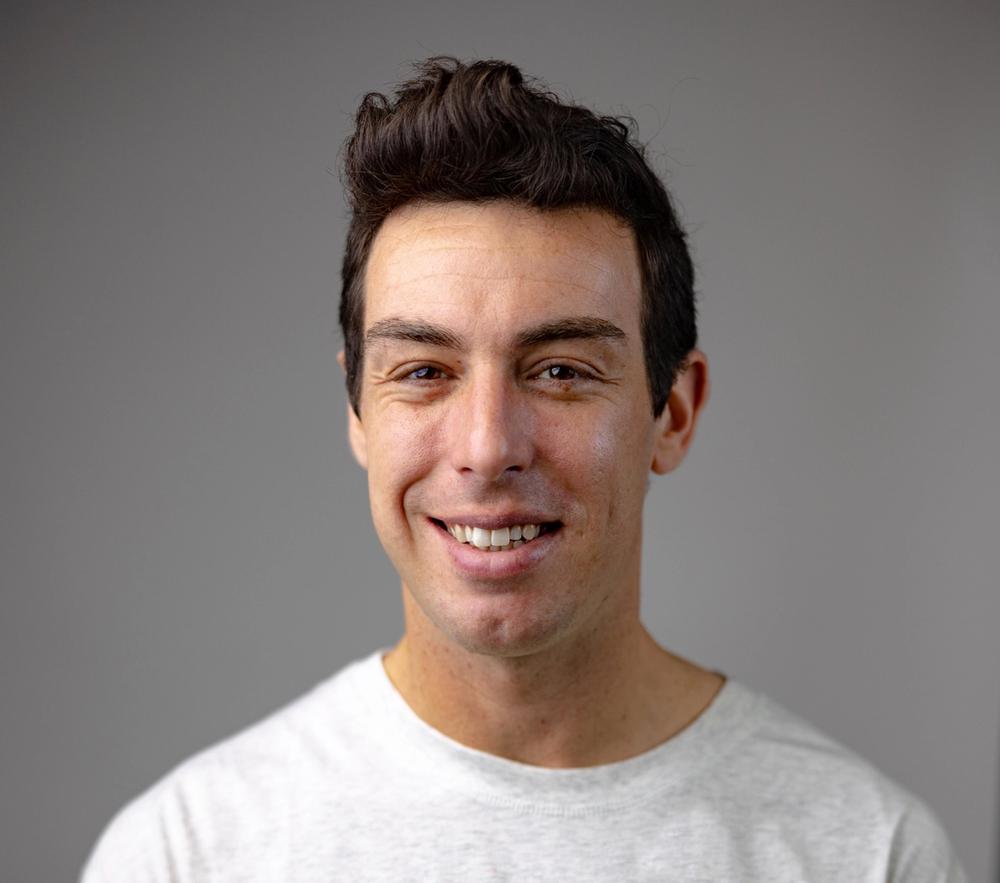
David Melly
David began contributing to CITIUS in 2018, and quickly cemented himself as an integral part of the team thanks to his quick wit, hot takes, undying love for the sport and willingness to get yelled at online.
